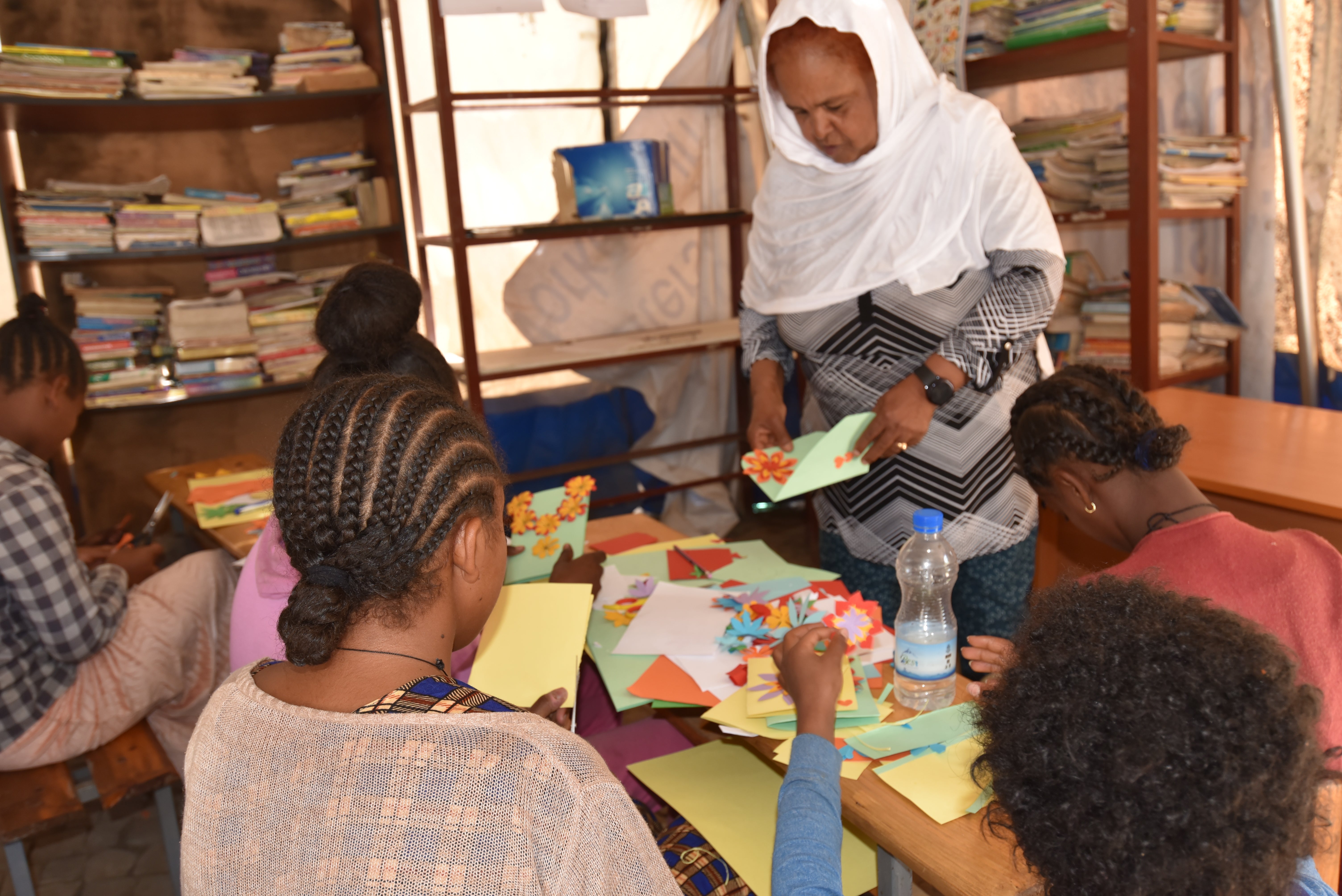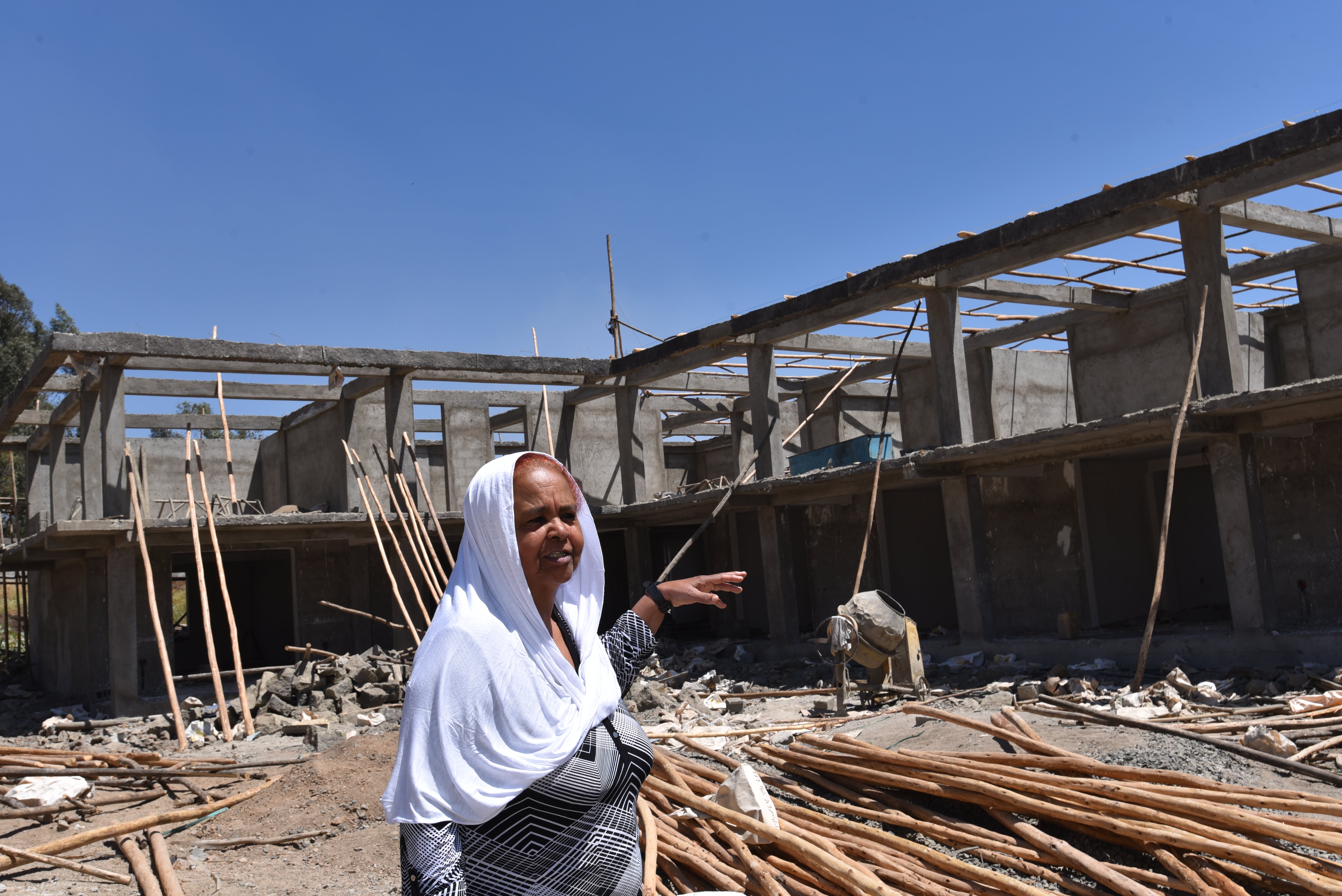For ALL Women and Girls: Maria Munir on comprehensive protection and survivors care
#ForAllWomenandGirls is a rallying call for action on the 30th anniversary of the Beijing Declaration and Platform for Action. Maria Munir from Ethiopia shares experience on establishing and sustaining shelters that provides comprehensive essential services for women and girl survivors of violence.
Date:

Maria Munir, a lawyer in her 60s, is one of the women pioneers in Ethiopia - fighting violence against women and girls and promoting gender equality in most of her life. Maria is the founder and Executive Director of the Association for Women’s Sanctuary and Development (AWSAD), established in 2005 to provide shelter and a comprehensive essential service to survivors including counselling, medication, legal aid and skills trainings to securely integrate them to the community.
While serving as a judge at federal high court and witnessing women’s challenges to access justice, led Maria and her female lawyer colleagues to establish the Ethiopian women Lawyers Association (EWLA) in 1995. “I became a strong advocate for women’s right through provision of legal aid to ensure women have equal access to justice and also to demand for law reforms to protect their right,” Maria tells us. AWSAD, UN Women Ethiopia’s key implementing partner, provides multisectoral trainings to service providers at institutional and community level and ensures gender issues are well understood and mainstreamed in violence prevention and response services.
Limited Progress in Ending Violence Against Women and Girls
According to the Ethiopian Demographic and Health Survey (2016), 23 percent of women aged 15-49, have experienced physical violence, 10 percent have experienced sexual violence and at least one out of every three women has experience spousal violence. Discriminatory attitudes towards women because of traditional norms, gaps in legal framework, limited awareness and enforcement of existing laws and limited comprehensive services to survivors are among the contributing factors for Violence Against Women and Girls.
A June 2024 national report on the implementation of the Beijing Declaration highlights ongoing restrictive social norms and humanitarian crises that increase women’s and girls’ vulnerability to GBV. The demand for GBV services remains high and unmet, necessitating better coordination and expansion of services. In Maria’s view, technology facilitated violence, sexual violence targeting very young children and the persistent gap in awareness about ending VAWG also contribute to sluggish progress. “Technologies including social media are influencing new ways of committing VAWG at alarming rate. Lack of relevant and adequate systems to hold perpetrators accountable encourage more violence. This requires a prompt shift in relevant prevention and response approaches,” she says.
Comprehensive service approach brings grassroots transformation
Maria has seen a shift in attitudes from when she started working till now, “When establishing AWSAD over twenty years ago, I had to go a long way with perseverance to justify its need in a country with traditional norms that preserve VAWG and the practice of biased attitudes towards women and girls. Today it is different. Because of the comprehensive service’s effectiveness, those who opposed and even the government are approaching us to spread-out the service,” says Maria. She is also the chairperson of Ethiopian Network of Women’s Shelters (ENWS) and supports association of rehabilitated survivors, which gives back to the community by advocating for ending of Violence Against Women and Girls.
Beijing Declaration and Platform for Action: A living document for action and accountability
Marie first learned about Beijing Declaration and Platform for Action while serving at the Ethiopian Women Lawyers Association (EWLA). The then Executive Director of EWLA, attended the conference. Maria views the Beijing Declaration and Platform for Action as a turning point, “For me it is a living document, which I refer to whenever I need information and face challenges. It not only promotes actions, but it also makes States accountable,” says Maria, “Although the national law once deprived AWSAD’s service to almost being closed down, the existence of the Beijing Declaration and Platform for Action, as an accountable mechanism, safeguarded us to continue the fight on VAWG,” she underscores.
For all women and girls: A life free of violence
Maria emphasizes that the Beijing Declaration and Platform for Action is crucial in ending VAWG. As AWSAD provides more services to survivors and the community, the demand for action increases, “Considering the gaps, what we have done in my view is a drop in an ocean. Our awareness creation in the community is motivating more survivors to seek service. Returning survivors because of limited space at our facility breaks my heart. This requires consistent actions and accountability,” says Maria who is currently leading the expansion of AWSAD’s facilities in the outskirt of Addis Abeba. “When we started, ending VAWG used to be viewed by others our concern only. Today; the police, religious leaders, elders, men and boys are onboard advocating to end VAWG,” stressed Maria.
